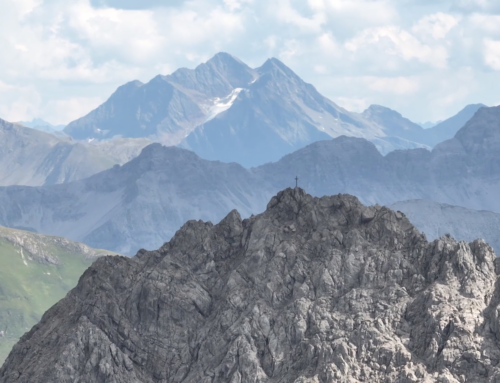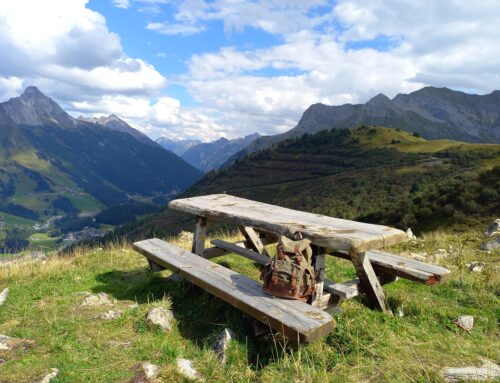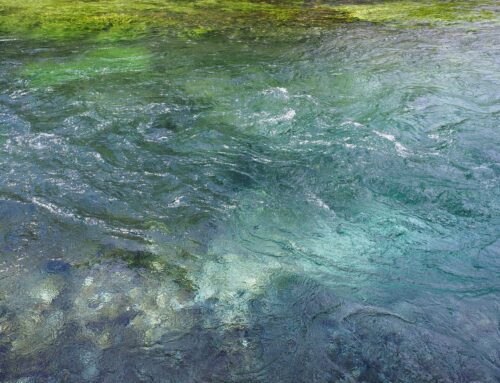We have long been aware of the benefits of exercising in a beautiful natural setting. But why does hiking make you happy? Professor of psychiatry Reinhard Haller has scientifically proven answers.
While the positive effects of walking on physical health are well documented, the effect on the psyche still remains elusive. Like every endurance sport, walking improves our physical fitness and generally improves our performance. It improves
A new medicine that has the same effects as walking on a regular basis would be seen as a miracle drug and would be a best-selling pharmaceutical, the likes of which have never been seen before.
Walking also has an effect on general health, as it can improve sleeping habits, promote a sense of wellbeing, and has restorative properties. However, the effects on the psyche and mental health are paid little attention, although they are extremely impressive. In the field of psychogeography, the extent of the effects that a landscape can have on a person’s wellbeing and emotional health have been proven. Some landscapes are familiar to us, others make us wary and melancholy, and others can give us a feeling of belonging and inner peace, or even of yearning or starting anew.
Walking is also representative of today’s widespread need for a natural life, minimalism, and individual freedom by way of contentment. The slow travel movement has not only discovered the joys of taking things slowly, it has also made the journey into the destination. Walking increases the psychological intensity of all you perceive, allowing you to experience thoughts and emotions more profoundly. Even hiking enthusiast Johann Wolfgang von Goethe knew long ago: “You’ve only really been somewhere if you have set foot there.”
“A new medicine that has the same effects as walking on a regular basis? That would be a miracle drug – a best-seller.”
The biological effects on the brain of the person walking have been scientifically proven and particularly apply to the central reward system. The physical strain activates multiple areas of the brain, which communicate using the neurotransmitter dopamine, in a way that is similar to what can be achieved with hypnosis, autogenic training or meditation techniques. Walking causes brain activity to be regulated in a way that is similar to the effects of these therapeutic relaxation methods. A precise psychological analysis shows that walking largely fulfills all of the essential goals of psychotherapy:
What could boost your self esteem more than conquering a mountain? And what could fill you with more tranquility than observing everyday life from high above or far away in a transcendent setting?
Walking allows us to create distance between ourselves and our everyday problems and relativizes our concerns. We can walk new worlds – internally, too. Walking at least somewhat involves various psychotherapeutic techniques and therapy procedures that we would otherwise pay a lot of money for. Walking is excellent physical therapy. Drug addicts, who offer harbor a feeling of disassociation (“my body does not belong to me”), suddenly feel themselves again: in their heartbeat, their rapid breathing, their muscle tension.
Walking goes hand in hand with mindful breathing, thereby creating a similar effect to breathing therapy. Walking helps you slow down and be conscious of the here and now, to let go. As walking through nature and the mountains is also a walk within yourself, it offers the perfect opportunity for an inner dialog, a psychotherapeutic technique where you discuss both sides of an issue with yourself. By converting our emotions into physical energy, walking serves to soothe frustration and is a fantastic form of anti-aggression therapy.
“Walking promotes creativity and reduces frustration.”
Like any endurance sport, walking is a natural method of treating all forms of depression. All physical exertion lasting longer than 30 minutes results in increased levels of the neurotransmitters serotonin and noradrenaline, which are known to be low among depressed people. At the same time, endurance sports invoke a natural sense of euphoria. Current scientific studies have shown that three walking sessions per week have had similar effects in depressed patients to highly potent pharmaceuticals. As such, walking can also serve as a preventative and remedial measure in cases of burn-out.
Incidentally, this was already known to the great Danish philosopher, Søren Kierkegaard, who himself suffered from depression and wrote: “I walked myself into my best thoughts, and I know of no worries that can’t be solved by walking.” A study by the University of Salzburg has shown that walking can vastly improve the prognosis for suicidal patients.
Walking encourages our creativity, and that has been scientifically proven. Even just encountering new landscapes, breathing freely in a natural setting, and the stimulation of our imagination thanks to the natural beauty can fill us with new ideas and open new dimensions of emotion that were unknown to us before. This is why walking could well be one of the most effective psychiatric medicines, if you were able to put all of its effects into a pill. However, that would be a shame. Because walking, especially in mountain landscapes, is much too wonderful to be reduced to a chemical substance.
None of these arguments are romanticized, nor do they falsely promise a cure. Experiences in nature and walking may not bring any miracles about, but they do have many psychotherapeutic functions. After many years working as a psychiatrist and psychotherapist, I do not say this because I hold psychotherapy in low regard, but instead because I have such a high opinion of walking, especially in the mountains.
Prof. Reinhard Haller, born in 1951 in Mellau in the Bregenz Forest, is one of the most renowned psychiatrists, psychotherapists and neurologists in Austria. His work focuses on addiction research. Reinhard Haller also serves as a court expert in matters of psychiatry.
Source: Vorarlberg Magazin „Augenweide” 2017 | Text: Prof. Reinhard Haller





